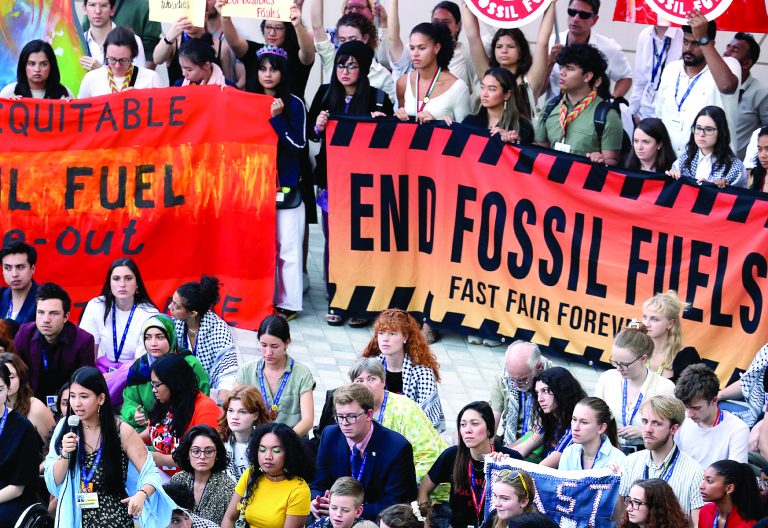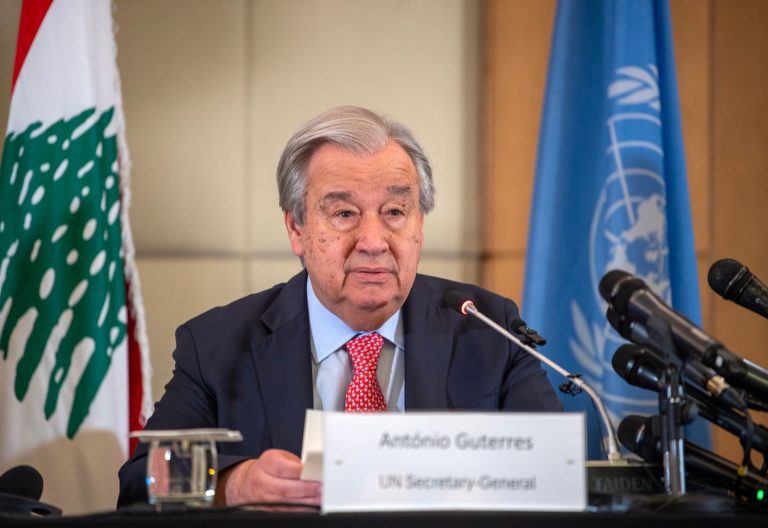Uproar as fossil fuels omitted on agenda for climate summit - People Daily
Thursday 15th May, 2025 11:00 AM|

The heated debate on fossil fuels and the just energy transition is not cooling down soon. And now the temperature has soared, with revelations that fossil fuels are not on the agenda of the upcoming United Nations climate summit (COP30).
Climate change activists backed by science are up in arms over why oil, gas and coal, which cause three-quarters of global emissions, are not featuring on the agenda of the world’s biggest annual climate talks in Belém, Brazil, this November.
Experts who have gone through the COP30 agenda have noted items including four work pillars, 16 possible negotiated outcomes, three advisory circles, one ethical stocktake, councils and roadmaps, except for the elephant in the room – fossil fuels – which they are demanding the climate summit must heed.
“There are so many shiny things garnishing the COP30 agenda that it’s easy to overlook one key absence: the preparations for the Belém climate change conference are simply not addressing the main cause of our current climate disruption,” Andreas Sieber, associate director of global policy and campaigns at 350.org, and Stela Herschmann, climate policy specialist at Observatório do Clima, a network of 130 Brazilian organisations, point out.
Writing in a commentary in Climate Home News, the award-winning independent digital publication covering the international politics of the climate crisis, they point out that fossil fuels, the source of 75 per cent of greenhouse gases, are nowhere to be seen in the negotiations.
“That must change if Brazil is willing to make it mutirão, the term it is using to launch a global mobilisation, a turning point in the fight for a liveable planet,” they wrote.
At COP28 in Dubai, United Arab Emirates (UAE), hosted by a petrostate under the helm of an oil executive, the Global Stocktake (GST) delivered a breakthrough: a clear call to “transition away from fossil fuels in energy systems in an orderly, just, and equitable manner”, with urgent action this decade.
That this emerged despite, not because of, the host’s interests only underscores its significance, they stated.
“The Global Stocktake may be dressed in the usual diplomatic language, but its message is unmistakable. It has set a new gold standard for climate action: putting the fossil fuel phase-out at the centre of the global response to the climate crisis”.
A few weeks after the landmark Dubai decision, however, some countries started voicing what a top diplomat has called “buyer’s remorse”, Sieber and Herschmann recall. At the G20 summit in Brazil last year, around the same time as COP29 in Baku, Azerbaijan, another petrostate, some countries led a rebellion against the GST.
They managed to prevent the leaders’ declaration from doing as much as reaffirming the commitment from paragraph 28d.
The COP 28 GST decision’s paragraph 28d emphasises the need to transition away from fossil fuels in energy systems, aiming for net-zero emissions by 2050. At COP29, the bloody fight for finance, with rich countries’ intransigence denying many others the possibility of implementing the transition, meant that no progress was made on the crucial energy issue, the experts noted.
Some countries argue that the Global Stocktake is not a buffet where countries pick and choose what to implement; all of its provisions must be followed up, including those on finance, which are anathema to developed nations.
“Furthermore, they say, the phase-out of fossil fuels outlined in Dubai must be delivered in each country’s climate plan, or nationally determined contributions (NDCs). The GST is but a guideline to better NDCs, and now it is up to each country to implement those guidelines as they see fit”.
Meanwhile, in the real world, a fossil fuel frenzy is going on with no end in sight. Rich oil-producing nations such as Australia, Canada and Norway are expanding their production like there’s no tomorrow (and at the current pace, there really won’t be), Sieber and Herschmann write in Climate Home.
Major developing economies like the COP30 host, Brazil, and the UAE are using the Global North expansion as an excuse to ‘drill, baby, drill’ themselves, each betting on being the last seller of oil, all gambling with the future of humankind.
“Not to say anything, of course, of the world’s top oil producer, the United States, which has become a rogue state under climate-change denier Donald Trump. To countries profiteering from the post-Ukraine invasion fossil orgy, that Saturday morning in 2023 when the gavel came down in Dubai is a hazy memory indeed,” they observe.
COP30 host Brazil is the only major emitter so far to go beyond merely reaffirming the Global Stocktake language in its NDC.
It says it would welcome the launching of international work for the definition of schedules for transitioning away from fossil fuels.
That sentence, say experts, captures one crucial thing about the Dubai energy decision that is lost to GST haters: it is not self-implementable.
It needs timetables and a suitable definition of “orderly, just and equitable”. Who goes first, in which time horizons? What are the barriers? How to overcome them?
The world cannot simply commit to phasing out fossil fuels and expect every country to come up voluntarily with a plan on how to constrain its own fossil industries – especially considering the record profits of oil companies this decade.
To be implemented, the Dubai text needs to be fleshed out. In short, it needs a COP decision.
“COP30 must deliver a formal outcome that accelerates the energy transition and implementation of the GST. Whether through a mandated process like the UAE Dialogue or a clear-eyed cover decision, COP30 must send a clear political signal and accelerate the energy transition and GST implementation.
“The COP30 Presidency holds the pen, and the political responsibility to secure a meaningful outcome on the energy transition that doesn’t tiptoe around hard choices,” Sieber and Herschmann emphasise, adding that the summit’s leader-level moment must reinforce and accelerate commitments to triple renewable energy capacity, double energy efficiency, and transition unambiguously away from fossil fuels.
They however, insist Brazil can’t go it alone. Other countries also need to step up and put all their heart and diplomatic creativity to work. Eyes are on Europe, whose leadership has been faltering.
For the African Group of negotiators, notably the fairly progressive position of the least developed countries (LDCs) has not always been represented by group negotiators on the topic of mitigation (emissions reductions) and fossil fuels.
“There is a need to recreate the alliance that led to the successful Dubai outcome, while listening to the concerns of countries that do not have the fiscal space to transition, in Africa in particular, or are concerned about meeting development needs, as in Asia”.
Two key moments for climate change shall test the will of the world to deal with the elephant in the room. Last week, ministers gathered in Copenhagen to find common political ground for Belém. In June, technical UN negotiations for COP30 take place in Bonn.
“At both meetings, fossil fuels need to be part of the conversation. We don’t have another 30 years to waste,” say Sieber and Herschmann.
You Might Also Like
For these and more credible stories, join our revamped Telegram and WhatsApp channels.








:strip_icc()/i.s3.glbimg.com/v1/AUTH_37554604729d4b2f9f3eb9ad8a691345/internal_photos/bs/2025/B/d/HiTQl4ThiLe7cFJeMicA/kings-of-leon-no-loolapalooza-2024-maria-isabel-oliveira-agencia-o-globo.jpg)